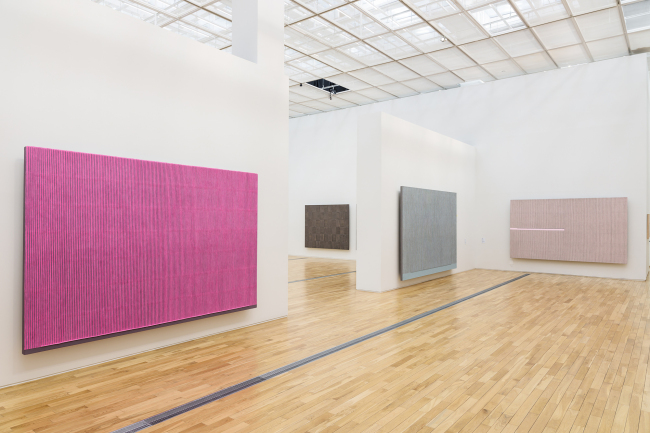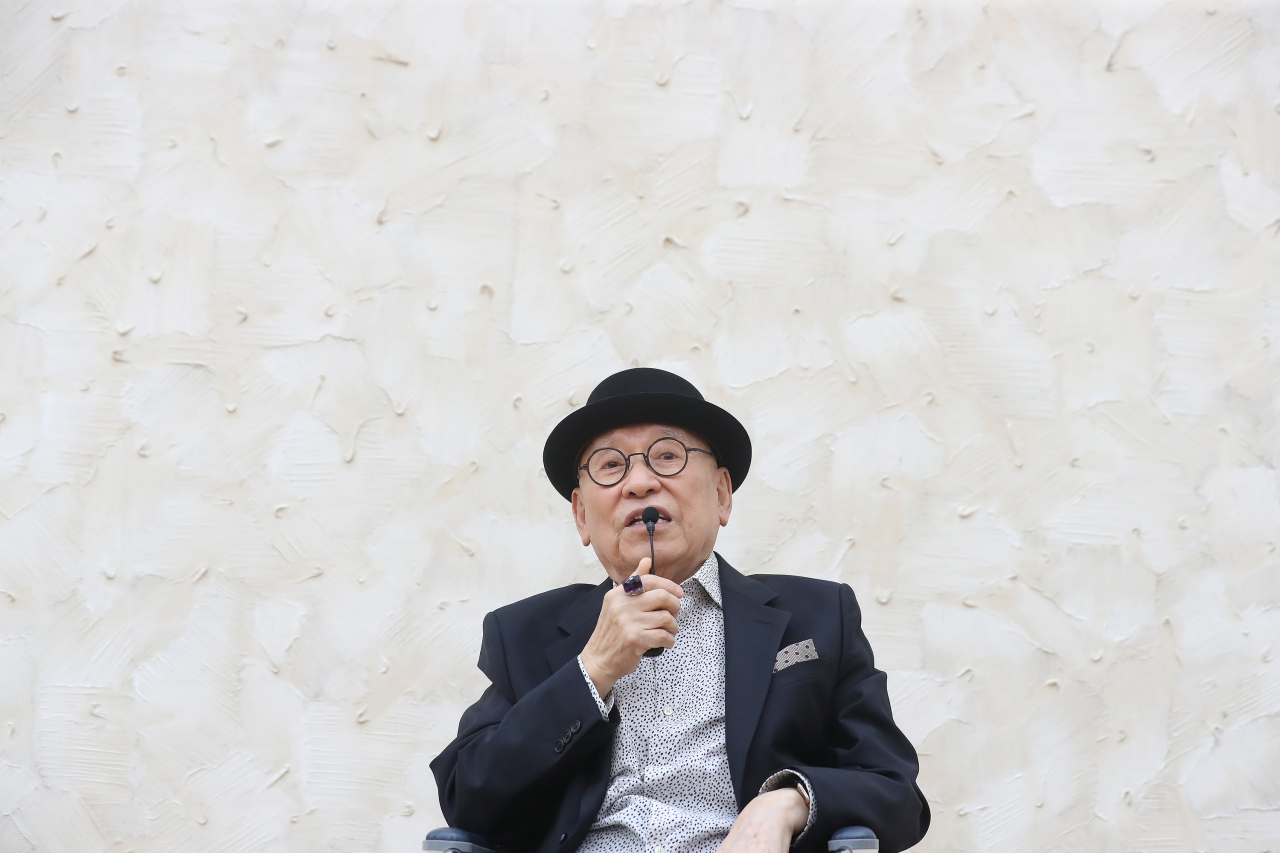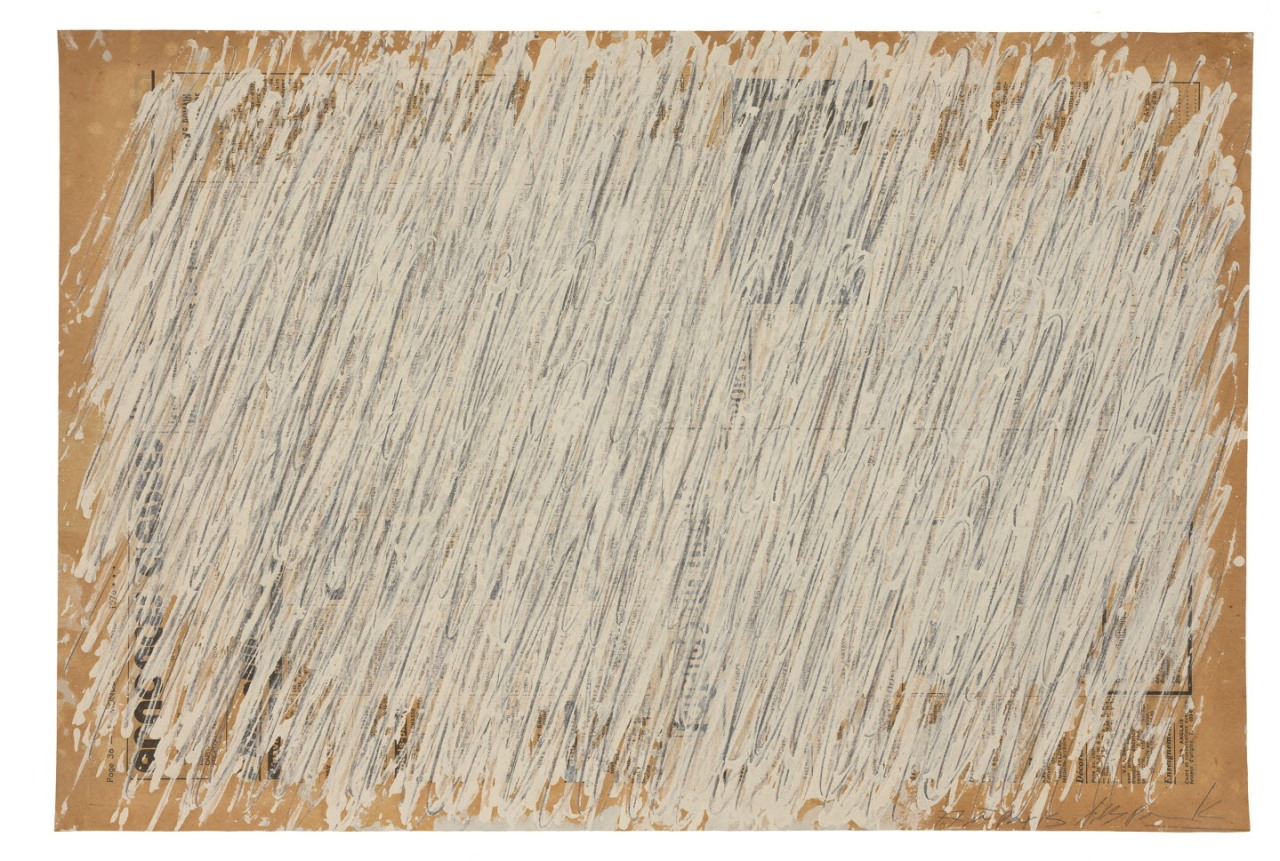Sitting in a wheelchair, artist Park Seo-bo appeared feeble, but his voice was energetic as he spoke during a press conference Thursday for his upcoming retrospective exhibition at the Museum of Modern and Contemporary Art’s Seoul branch.
“I am very happy to see the retrospective’s opening. This exhibition has everything of me, including the things that I wanted to hide from the world. The exhibition reveals all the steps I have taken so far. I feel naked here. But it will be better for my record to be laid bare, instead of me standing naked,” Park said.
 |
An installation view of Park Seo-bo’s retrospective “Park Seo-bo: The Untiring Endeavorer” at the MMCA’s Seoul branch (MMCA) |
 |
Artist Park Seo-bo explains his retrospective “Park Seo-bo: The Untiring Endeavorer” during a press conference Thursday at the MMCA’s Seoul branch. (Yonhap) |
The exhibition “Park Seo-bo: The Untiring Endeavorer” opens at the MMCA on Saturday, featuring 129 works and archive materials of the 88-year-old artist.
Born in 1931, Park is best known for his large-scale minimal painting series called “Ecriture,” as well as his ceaseless production.
The latest exhibition is presented in reverse chronological order, starting with the most recent works. The five sections of the exhibition show the stylistic and formal transitions of his art practice.
It starts with Park’s two most recent “Ecriture” paintings, produced in 2019. This first section shows Park’s most recent “Ecriture” series in exuberant colors, created in the belief that art should be able to heal viewers.
“If painting in the analogue age was about an artist throwing an image on canvas, it is different in the digital age,” Park said.
While defining the contemporary world as a “ward” of people who suffer from stress, Park insisted that painting ought to take away the negative.
 |
Artist Park Seo-bo’s 1977 painting “Ecriture No.01-77” (MMCA) |
The second and third sections showcase earlier “Ecriture” paintings that feature zigzag patterns and those that he produced with pencil -- after being inspired by his young son’s unschooled handwriting.
The fourth section introduces works that incorporate elements of optical art and pop art movements of the late 1960s.
Park’s earliest works are displayed in the last section, including his seminal 1957 work “Painting No.1.” The piece led to Park being identified as Korea’s first “informel” -- or informalist -- artist, the museum said.
Also on view is an installation titled “Void Space,” a recreation of the piece first introduced at the Osaka Expo in 1970 at the request of well-known Korean architect Kim Swoo-geun, who designed the Korean pavilion at the expo and the exhibition.
The retrospective runs through Sept. 1.
By Shim Woo-hyun (
ws@heraldcorp.com)







![[Exclusive] Hyundai Mobis eyes closer ties with BYD](http://res.heraldm.com/phpwas/restmb_idxmake.php?idx=644&simg=/content/image/2024/11/25/20241125050044_0.jpg)
![[Herald Review] 'Gangnam B-Side' combines social realism with masterful suspense, performance](http://res.heraldm.com/phpwas/restmb_idxmake.php?idx=644&simg=/content/image/2024/11/25/20241125050072_0.jpg)

